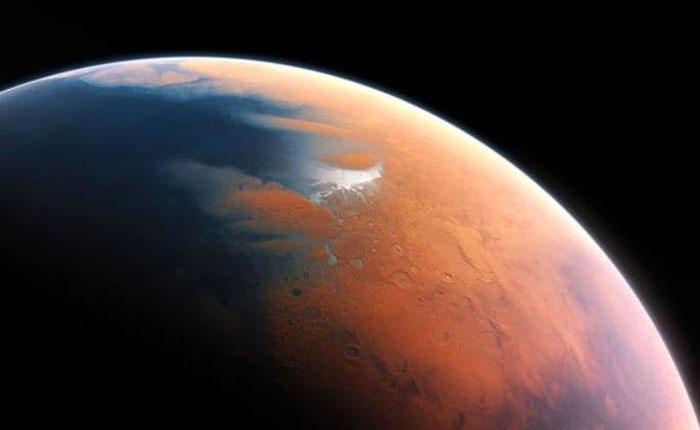The unexpected reason why the planet 'better than Earth' is not habitable
That's Mars, Earth's brother, according to new research from the University of Washington in St Louis (USA).

Mars - (Photo: NASA).
"The fate of Mars was decided from the start. There may be a required threshold for the size of the rocky planets to hold enough water to support life and plate tectonics," said senior author, Dr. Dr. Kun Wang, a researcher at the Department of Earth and Planetary Sciences, said.
According to Sci-News, they used the stable isotope of potassium to estimate the presence, distribution and abundance of volatile elements on many other planets and celestial bodies. As a result, they found that Mars lost more potassium and other volatiles than Earth did during its formation , but retained more volatiles than the moon and the asteroid 4 Vesta, two objects drier than Earth and Mars.
Mars 4 billion years ago was determined to be wetter than Earth, but unfortunately, the smaller the size of a rocky object, the more difficult it is for them to have the right chemical and atmospheric conditions to keep them. water again.
So, Mars is evaporated and arid, like the moon.
The study, just published in the Proceedings of the National Academy of Sciences, promises to provide a new screening criterion in the search for habitable planets. Obviously, to hold water, rocky planets also need a sufficient size.
- Exotic planet like most earth ever
- Discovered new exoplanets in habitable zone
- Discover a set of three planets that may have life
- The mystery of Proxima b's numbers:
- Do the colors of the exoplanets reveal if they could be habitable?
- The most Earth-like planet shows up
- 7 facts about the Earth that many of us have not yet updated
- Identify 7 planets that can live
- Unexpected surprises about Earth
- Your planet is closest to Earth
- What new planet is '2nd Earth'?
- Information about 'Second Earth'
 Announced 3 houses on the Moon and Mars
Announced 3 houses on the Moon and Mars Science proves: Mars also knows 'deflated'
Science proves: Mars also knows 'deflated' Elon Musk announced the price for a Mars trip was 11.6 billion VND, free of charge
Elon Musk announced the price for a Mars trip was 11.6 billion VND, free of charge NASA discovered strange 'gate' on Mars, is the hiding place found?
NASA discovered strange 'gate' on Mars, is the hiding place found?